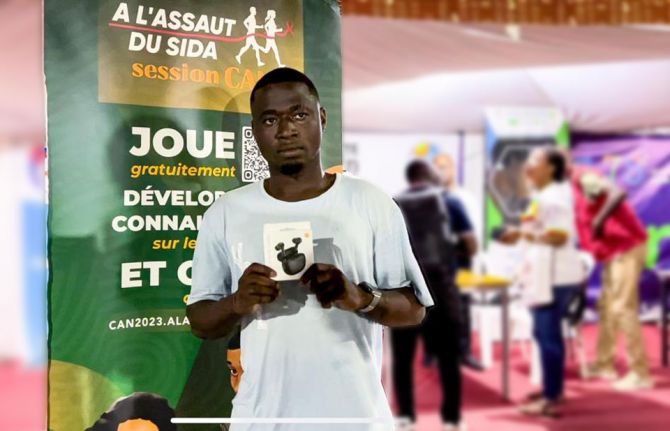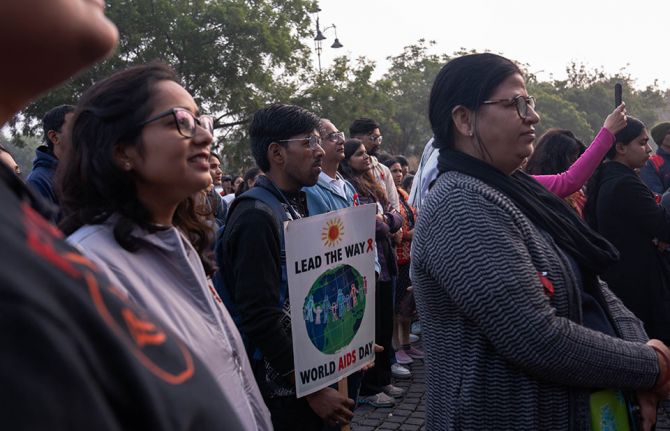aids2031

Feature Story
aids2031 2009 Young Leaders Summit
26 June 2009
26 June 2009 26 June 2009
Thirty young leaders from around the world came together in Oslo June 23 - 25 for the
aids2031, in collaboration with the Norwegian Ministry of Foreign Affairs and UNAIDS Goodwill Ambassador Her Royal Highness Crown Princess Mette-Marit of Norway, hosted the Summit to promote and galvanize young leadership in the fight against AIDS-related stigma and discrimination.

L to R: Heidi Larson, Executive Director aids2031, UNAIDS Executive Director Michel Sidibé, UNAIDS Goodwill Ambassador Her Royal Highness Crown Princess Mette-Marit of Norway. Credit: aids2031
"We are here to talk about the future- but more importantly we are here to make the future" said HRH Princess Mette-Marit in her opening remarks welcoming the young participants.
I believe that young people are the future, and offer my support to young leaders because they are a force for change.
UNAIDS Executive Director Michel Sidibé
UNAIDS Executive Director Michel Sidibé addressed the forum as an Advisor Participant. “I believe that young people are the future, and offer my to support young leaders because they are a force for change in the future,” said Mr Sidibé.
UNAIDS has made empowering young people one of its priority areas as noted in Outcome Framework: Joint Action for Results

Thirty young leaders from around the world came together in Oslo June 23 - 25 for the 2009 aids2031 Young Leaders Summit. Credit: aids2031
UNAIDS calls for “putting young people’s leadership at the centre of national responses, providing rights-based sexual and reproductive health education and services and empowering young people to prevent sexual and other transmission of HIV infection among their peers.”
Before and during the three day Summit, over 30 young leaders from around the world worked together to identify pressing stigma and discrimination issues for young people and identify ways to leverage current strategies and collaborations. The event was designed by a youth-led planning committee and followed the first aids2031 Young Leader’s summit held at the Google Headquarters in California in 2008.
Young leaders reviewed the recommendations of aids2031's researchers, scientists, and practitioners for building a long-term response to AIDS. On the closing day of the Summit, they shared their recommendations on how to address youth AIDS issues for the aids2031 report, “An Agenda for the Future.”
They hope their recommendations for policy-makers, international institutions, the media, funders and other young people are considered, and called for their collective implementation.
aids2031 2009 Young Leaders Summit
Related

Feature Story
Love in a Time of HIV
19 December 2008
19 December 2008 19 December 2008
"It is possible to love someone with HIV. It is not different from loving anybody else,” says Christina Rodriguez in one of the five episodes of the new documentary series "Love in a time of HIV" . Credit: aids2031
“It is possible to love someone with HIV. It is not different from loving anybody else,” says Christina Rodriguez in one of the five episodes of a new documentary series on the sexual and reproductive lives of young people living with HIV titled "Love in a Time of HIV".
Sixteen year old Christina was diagnosed HIV positive when she was three, at the same time that her parents found out about their positive status. Now, she talks openly about how she copes with her treatment and how she and her mother are dealing with being HIV positive. “Maybe it will make dating harder but I don’t have to tell them anything until I think we are serious.”
Cristina tells her story in one of five episodes which explore how young people living with HIV are navigating the transition to adulthood, their sexual and reproductive lives, careers and families and their expectations and hopes for the future. Each episode profiles several young people living with HIV in a different city: New York, Mumbai, London, St. Petersburg and Cape Town.
Through intimate stories Love in a Time of HIV aims to help counter the growing complacency surrounding AIDS by exposing how young people are affected by the epidemic as well as educating viewers on the urgent needs of young people both HIV positive and negative to access sexual and reproductive health information and services.
“I was just given a little piece of paper with a plus on it. What was it? What does it mean? I didn’t understand what the plus meant at the time. But later, at the [rehab] clinic, they simply refused my admission by saying that I was HIV positive” stated Masha who used to inject drugs and is living with HIV.
Masha and her friend are both married to HIV negative young men. As their story unfolds, the viewer is presented with the difficult dilemma that these discordant couples face. The men, both 25, are so keen to be fathers they are both having unprotected sex with their HIV positive wives to try to conceive a child disregarding their risk of getting infected.
Today’s young people grew up alongside the emergence of the AIDS pandemic, and their actions are key to determining the future of AIDS. Young people are also disproportionately affected by AIDS – over 40 percent of new HIV infections globally occur in young people under the age of 25. There are currently 10 million young people living with HIV, many of whom do not have access to the treatment, care and support needed to live healthy lives.

Masha and her friend are both married to HIV negative young men. As their story unfolds, the viewer is presented with the difficult dilemma that these discordant couples face. Credit: aids2031
Despite the glaring statistics that today’s youth around the world are often most at risk of HIV infection, and the host of issues young people face daily – from skyrocketing unemployment rates to sexual violence and rapidly unfolding conflict situations – very little is known about the views and behaviors of young people, especially when it comes to their sexual and reproductive health. Young people are often not consulted in national-level health policy and programmes, and there is a growing gap between what academics and policy-makers consider to be the “reality” of young people’s lives, and the actual experiences of young people growing up in a quickly globalized economy.
Young people’s perspectives and insights into the issues they and their countries face on a daily basis are crucial to develop an effective AIDS response. Their views and opinions should be mainstreamed within the AIDS response to ensure young people are adequately being addressed by programs and policies.
The Love in a Time of HIV series is currently on air on BBC World, running since November 2008. It is also being discussed and disseminated online. Find out more on BBC World web site and the series can be viewed from the aids2031 web site.
About aids2031
aids2031 is a two-year project developed in 2007 by a consortium of partners—including economists, epidemiologists, biomedical, social and political scientists—to look at what has been learned about the global AIDS response, and to deliver recommendations on how to shift it towards one that is long term and sustainable. This project is not about what should be done in 2031, but what can be done differently, now, to change the face of the pandemic by 2031, 50 years after AIDS was first reported.
In late 2009, aids2031 will issue its recommendations in its final report, An Agenda for the Future. To provide input into this report, aids2031 has convened nine global working groups, each charged with questioning conventional wisdom, stimulating new research and sparking public debate around the current and future AIDS response. To that end, the various working groups have engaged nearly 500 leaders, activists and experts within, and outside of, the AIDS community in discussions with think tanks, public dialogues and a young leaders summit.



